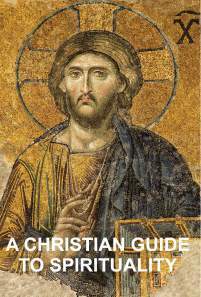Stephen W. Hiemstra's Blog, page 276
November 28, 2014
Doxología

Photo by Stephen W. Hiemstra
“Porque Tuyo es el reino y el poder y la gloria para siempre. Amén.” (Matt 6:13 NBH)
Por Stephen W. Hiemstra
Translaciones recientes de la Biblia excluyen la doxología:“Porque Tuyo es el reino y el poder y la gloria para siempre. Amén.” [1] ¿Por qué?
Jesús dio los discípulos el Padre Nuestro que les enseñara a orar, no como una oración obligatoria. Tres veces Jesús repitió la frase: “Cuando ustedes oren” (Matt 6:5-7 NBH) [2]. Después, dijo simplemente: “oren de esta manera” (Matt 6:9 NBH) Jesús ofreció un patrón para oración que se puede ajustar según sea necesario. La iglesia primitiva amaba esta oración y se tomó en serio este consejo. Las adiciones mas común fue la de añadir una doxología y la palabra, amen, lo que significa que así sea. En consecuencia, esta adición no aparece en los manuscritos más antiguos a pesar de que las iglesias siguen utilizando hoy en día.
Cuando los reformistas empezaron que examinar los original textos griegos en el siglo quince, la translación latina de San Jerónimo había sido utilizada casi exclusivamente por un mil años. Los manuscritos del griego Testamento Nuevo inmediatamente disponible en bibliotecas locales estaban reunidos y traducido en Ingles, Alemán, Francés, y otras idiomas europeas. Más tarde, sin embargo, cuando los eruditos empezaban a estudiar los miles de manuscritos griego disponible a lo largo en las iglesias y bibliotecas del mundo, llegaron a entender que todos los manuscritos no estaban igualmente antiguo. Translaciones recientes enfoquen por los manuscritos mas antiguo [3].
Los manuscritos más antiguo excluye la doxología y amén. Por esta razón translaciones de la Biblia hechas antes este descubrimiento incluye la doxología y amén, mientras translaciones más recientes no lo hacen. Hugenberger (1999, 55) observa que la doxología abrevia una doxología más largo ya que se encuentra en 1 Crónicas 29:11-13.
La doxología se toma de la palabra griega, doxa, que significa: “la condición de ser brillante o resplandeciente, brillo, esplendor, luminosidad” [4]. Amén es una palabra hebrea se atribuye a Jesús a si mismo que significa realmente. Cuando Jesús dice: “En verdad, en verdad os digo que . . .” (John 1:51 LBA), el texto griego lee—amén, amén—cual el griego translitera de el hebreo.
La oración personal es un distintivo cristiano. Jesús nos ensena a orar, pero ni exactamente lo que a orar. Él desea nos a lo venir como una comunidad de fe, sino también nos desea a acercarse a él como individuos. Oración personal es un distintivo cristiano.
[1] Por ejemplo, La Nueva Versión Internacional no incluye la doxología.
[2] En griego, hay tres expresiones diferente con la misma raíz.
[3] Metzger y Ehrman(2005) revisan la historia textuales del Testamento Nuevo en gran detalle.
[4] ”(BDAG 2077,1). Por ejemplo: “Y un ángel del Señor se les presentó, y la gloria (δόξα) del Señor los rodeó de resplandor, y tuvieron gran temor.” (Luke 2:9 NBH).
REFERENCIAS
Bauer, Walter (BDAG). 2000. A Greek-English Lexicon of the New Testament and Other Early Christian Literature. 3rd ed. Ed. Frederick W. Danker. Chicago: University of Chicago Press. .
Hugenberger, Gordon P. 1994. Marriage as a Covenant: Biblical Law and Ethics as Developed from Malachi. Grand Rapids, MI: Baker Academic.
Metzger, Bruce M. and Bart D. Ehrman. 2005. The Text of the New Testament: Its Transmission, Corruption, and Restoration. New York: Oxford University Press.

November 27, 2014
Lift Your Eyes to the Lord

Photo by Stephen W. Hiemstra
I lift up my eyes to the hills. From where does my help come? My help comes from the LORD, who made heaven and earth. (Psalm 121:1-2 ESV)
By Stephen W. Hiemstra
Faith is a life-saver. One of the deadliest of lies is that we are alone, without hope. We know from Christ that God loves us and will never leave us. Therefore, setbacks in this life are temporary—an illusion to test our faith. As Christians, we know that the end of the story is in Christ and He is in control.
The idea of Christian faith has become unfashionable. The postmodern world we live in is often like the Sahara desert where mountains of sand blow about daily. Direction in a world of shifting sand requires a surveyor’s marker that establishes location. Standing on a marker, a map shows both direction and distance. Without the marker, however, a map becomes a puzzle—like words without definitions—whose pieces have meaning only relative to one another. Scripture is our map; our marker is Jesus Christ [1].
When King David wrote, “The heavens declare the glory of God, and the sky above proclaims his handiwork” (Pslam 19:1), he did not just have creation’s beauty in mind. The order of the universe points to the glory and sovereignty of God. Everywhere that scientists have studied, the same laws of physics apply. Why should there only be one set of physical laws?
As David implies, the order and stability of the created universe testifies to God’s existence and sovereignty. Kurt Gödel, a Czech mathematician, who was born in 1906, educated in Vienna, and taught at Princeton University, is famous for his incompleteness theorem published in 1931. This theorem states that stability in any closed, logical system requires that at least one assumption be taken from outside that system [2]. If creation is a closed, logical system (having only one set of physical laws suggests that it is) and exhibits stability, then it too must contain at least one external assumption. God, himself, fulfills that assumption (Smith 2001, 89).
Creation is not the only closed, logical system that we care about. The human psyche is also a closed, logical system. When we experience a tragedy or trauma or just do something stupid, we have a choice. Do we cry why me? OR do we look to God for help?
If we cry why me and look inward cutting ourselves off from other people and from God, we become a closed, logical system without an assumption taken from outside ourselves. The result is a logically unstable condition. I call it: “the pit”. There is no ladder that reaches outside this pit from inside. Everything that is valuable to us is in the pit. The pity party goes on and on without resolution—like a dog chasing its own tail. Depression not only makes us unhappy, over time our brains physically atrophy enough to show up on a cat-scan.
By contrast, when we cry to God for help, we not only look outside ourselves, we look to the source of stability for all of creation. But God is more than a helpful abstraction; in Jesus Christ we know that God loves us—individually and collectively—like a loving father. When we cry to God for help, he extends a hand strong enough to pull us out of the pit. This is sometime that we cannot do for ourselves. After all, we dug the pit.
[1] Benner (2002, 26) sees the role of a spiritual director as of pointing to God’s work in a person’s life.
[2] An example can be seen in economics is applied to price theory. The U.S. economy requires one price be set outside the economy (in the world market) to assure stability. In the nineteenth century, that price was gold, and the system was called the gold standard. Every price in the U.S. economy could be expressed in terms of how much gold it was worth. Now, the dollar functions that way.
REFERENCES
Benner, David G. 2203. Sacred Companions: The Gift of Spiritual Friendship & Direction. Downers Grove, IL: IVP Books.
Smith, Houston. 2001. Why Religion Matters: The Fate of the Human Spirit in an Age of Disbelief. San Francisco: Harper.
Also online at: www.LloydRosen.com

November 26, 2014
Temptation and Evil

Art in Friendship Missionary Baptist Church, Charlotte, NC
“And lead us not into temptation, but deliver us from evil.” (Matt 6:13)
By Stephen W. Hiemstra
Do you ever worry about Satan?
Satan’s role in tempting us and promoting evil in the world is found throughout scripture.
In the Garden of Eden, Satan is pictured as a snake who rebels against God and tempts others to sin by rebelling with him [1]. God later advises Cain to be good because, otherwise, sin will strike like a snake crouching at your door (Gen 4:7).
Another important image of Satan is given in Job 1 where Satan is depicted as a ruthless prosecuting attorney in God’s court. Satan’s cruel lies slander a righteous Job. Still, Satan cannot afflict Job without first seeking God’s permission (Job 1:6-12). In spite of Satan’s cruelty, Job remains faithful. In the end, God not only acquits him of all of Satan’s charges, Job is compensated for his losses (Job 42:10).
In the synoptic gospels, the Holy Spirit leads Jesus into the desert where the devil tempts him [2]. Much like Adam and Eve are tempted with food, the devil starts by goading a hungry Jesus into turning a stone into bread. The devil tempts Jesus three times. Jesus cites scripture in response to each temptation. In the final temptation, the Devil’s temptation starts by misquoting scripture, but Jesus corrects the deception and resists the temptation [3].
Like Job and unlike Adam, Jesus remains faithful to God’s will in life and in death. Jesus’ death on the cross then fulfills the prophecy of Satan’s defeat (Gen 3:15) and pays the penalty for sin—we are redeemed. Because the curse of sin is broken, the death penalty for sin has been rescinded (1 Cor 15:22). The resurrection accordingly proves that we have been reconciled with God.
In the Lord’s Prayer, Jesus asks us to pray that we not be tempted and that we be delivered from evil. Because Satan must ask permission to tempt us, God can deny that petition and our deliverance is within his power. King David writes: “Preserve me, O God, for in you I take refuge.” (Ps 16:1) Jesus has promised us that when we turn to him in weakness our salvation is secure (John 10:29).
[1] For example, Kline (2006, 302) writes about the people of God and the people of the serpent.
[2] Mark 1:12-13 gives a brief over view while Matt 4:1-11 and Luke 4:1-13. The Luke version has the most detail. The second and third questions posed by Satan appear in different order in Matthew and Luke.
[3] Each temptation Jesus faces is a challenge facing all Christians, particularly leaders. Henri Nouwen (2002, 7–8) summarizes these leadership challenges as the temptation to be relevant (provide food), to be spectacular (show your divinity), and to be powerful (take charge).
REFERENCES
Kline, Meredith G. 2006. Kingdom Prologue: Genesis Foundations for a Convenental Worldview. Eugene, OR: Wipf & Stock Publishers.
Nouwen, Henri J. M. 2002. In the Name of Jesus: Reflections on Christian Leadership. New York: Crossroad Publishing Company.

Tentación y Mal

Art in Friendship Missionary Baptist Church, Charlotte, NC
“Y no nos metas (no nos dejes caer) en tentación, sino líbranos del mal (del maligno).” (Matt 6:13 NBH)
Por Stephen W. Hiemstra
¿Alguna vez te preocupas por Satanás?
El papel de Satanás en tentarnos y promover el mal en el mundo se encuentra en toda las Escrituras.
En el Jardín de Edén, Satanás es representado como una serpiente que se revele contra Dios y tienta a otros a pecar por rebelarse con él [1]. Dios más tarde aconseja Caín a ser bueno por que de lo contrario los pecados golpeará como un serpiente se agacha en su puerta (Gen 4:7).
Otra importante imagen de Satanás se da en Job 1 donde Satanás es representado como un fiscal despiadado ante el tribunal de Dios. Las crueles mentiras de Satanás calumnian un justo Job. Sin embargo, Satanás no puede afligir a Job sin antes pedir permiso de Dios (Job 1:6-12). A pesar de la crueldad de Satanás, Job permanece fiel. Al final, Dios lo absolví de todos los cargos de Satanás y también se compensa Job para sus pérdidas (Job 42:10).
En los evangélios sinópticos, el Espíritu Santo llevó Jesús en el desierto donde el diablo le tiente [2]. Al igual como Adán y Eva se tientan con alimentos,el diablo comenzó a incitar a un Jesús hambre en convertir un piedras en pan. El diablo tiente Jesús tres veces. Jesús citó la escritura en respuesta a cada tentación. En la ultima tentación, la tentación del diablo citó erróneamente las escrituras, pero Jesús corrige el engaño y se resiste a la tentación [3].
Como Job y no como Adán, Jesús permanece fiel a la voluntad de Dios en la vida y en la muerte. La muerte de Jesús por la cruz entonces llena la profecía de la derrota de Satanás (Gen:15) y lo pagó la pena para los pecados—somos redimido. Por que la maldición de pecado se había sido derogado (1 Cor 15:22). En consecuencia la resurrección prueba que hemos sido reconciliados con Dios.
En el Padre Nuestro, Jesús pida nos a orar que no caer en la tentación y que se entregará del mal. Por que Satanás debe pedir permiso a tentar nos, Dios puede negar permisión y nuestra liberación permanece en su poder. El rey David escribe: “Protégeme, oh Dios, pues en Ti me refugio.” (Psa 16:1 NBH) Jesús nos prometía que cuando volveremos en debilidad a él nuestra salvación se segura (John 10:29).
[1] Por ejemplo, Kline (2006, 302) escribe sobre el pueblo de Dios y el pueblo de la serpiente.
[2] Mark 1:12-13 da un sinopsis breve mientras Matt 4:1-11 y Luke 4:1-13 son más largo. La versión de Lucas da el mayor detalle. Las segunda y tercera preguntas presentaban por Satanás parece en un order diferente en Mateo y Lucas.
[3] Cada tentación que Jesús afrentó es un desafío que enfrenta todos los cristianos, en particular los líderes. Henri Nouwen (2002, 7-8) resume estos desafíos de líderes como un tentación a ser relevante (proporcionar alimentos), a ser espectacular (mostrar su divinidad), y a ser poderoso (hacerse cargo).
REFERENCIAS
Kline, Meredith G. 2006. Kingdom Prologue: Genesis Foundations for a Convenental Worldview. Eugene, OR: Wipf & Stock Publishers.
Nouwen, Henri J. M. 2002. In the Name of Jesus: Reflections on Christian Leadership. New York: Crossroad Publishing Company.

November 24, 2014
Resurrection of the Body
One big anxiety that amputees experience is that lost body parts embody their identity in ways that must now change. The pain is particularly acute when the body part is associated with a beloved activity. Our hearts go out, for example, to the runner who loses a leg or the brilliant researcher who develops Alzheimer’s disease. Our body is part of our identity.
God knows who we are and feels our pain—to be human is to be whole in body, mind, and spirit.
Jesus raised the widow’s son out of compassion (Luke 7:13) and he wept before raising Lazarus from the dead (John 11:35). How compassionate would Jesus have been if he had raised the widow’s son from the dead only to have the son live on as a paraplegic? Or if Jesus raised Lazarus from the dead but left him mentally handicapped?
During my time as a chaplain intern, I knew a dear woman who had been resuscitated after her heart stopped for eight minutes. The resuscitation left her afflicted with dementia and forced to live in a lock-down, Alzheimer’s unit. The affliction left her family guilt ridden and torn over their decision to resuscitate her.
Resuscitation leaves scars. Scripture reports that the widow’s son and Lazarus were returned to health without scars. Consequently, Jesus did not resuscitate them; he re-created them as only God can Meredith Kline (2006, 220–21) uses the term re-creation in reference to the flood narrative and sees this idea already present in 2 Pet 3:5-7. In other words, Noah was a second Adam even before Christ..
Resurrection is an act of grace—bodily resurrection completes the compassion.
Jesus was bodily resurrected. When the resurrected Christ appeared before the disciples in Jerusalem, he asked for something to eat; the disciples gave him a piece of broiled fish and he ate it (Luke 24:41-43). Furthermore, Christ’s compassion for his own disciples, who had deserted him, reveals that Jesus, in his perfection, did not harbor the deep emotional scars that might normally accompany the trauma that he experienced (John 21:17).
Consider the alternative. What if Jesus had been raised only spiritually, how long would he continue to empathize with us? Or what if Jesus harbored grievous handicaps or emotional scares? Would he still have pity on the rest of us? Would we really want to stand before such a scarred and potentially vengeful judge?
Christ’s resurrection was a re-creation, not resuscitation, event. Christ’s resurrection gives us hope because our judge is healthy and whole. He is still human and he harbors no grievances.
REFERENCES
Kline, Meredith G. 2006. Kingdom Prologue: Genesis Foundations for a Convenental Worldview. Eugene, OR: Wipf & Stock Publishers.

Resurrección del Cuerpo
Una ansiedad grande que amputados experimenten es que las partes de cuerpo perdido encarnan su identidad en maneras que ahora deben cambiar. Esta dolor es aguda particularmente cuando la parte del cuerpo es asociado con una actividad amada. Nuestras corazones están con, por ejemplo, para un corredor quien pierde una pierna o un investigador brillante quien desarrolla la enfermedad de Alzheimer. Nuestro cuerpo es una parte de nuestra identidad.
Dios lo sabe quien somos y siente nuestro dolor—ser humana es ser completa en el cuerpo, mente, y espíritu.
Jesús levantó el hijo de la viuda de su siento de compasión (Luke 7:13) y el lloró antes levantando Lázaro (John 11:37 NBH) de entre los muertos (John 11:35). Cómo compasivo hubiera sido si levantó el hijo de la viuda de la muerte sólo a tener el hijo continuar viviendo como un parapléjico? O si Jesús resucitó Lázaro de entre los muertos pero lo dejó discapacitado mental?
Durante mi tiempo como pasante capellán, conocía una querida mujer quien fue resucitado después un paro cardíaco de ocho minutos. La resucitación la dejo con una aflicción de demencia y ella obligado a vivir en un bloqueo hacia abajo, unidad de Alzheimer. Su aflicción dejó la familia lleno de culpabilidad y desgarrado sobre su decisión de permito la resucitado.
Resucitación deja cicatrices. La escritura informa que el hijo de la viuda y Lázaro fueron devueltos a salud sin cicatrices. Consecuentemente, Jesús no les resucitado; él les re-creado como sólo Dios puedeMeredith Kline (2006, 220–21) usa el termino, re-creado, en referencia a la narrativa de las inundaciones y vea esta idea ya presente en 2 Pet 3:5-7. En otras palabras, Noé era un Adán segundo, incluso antes Cristo..
La resurrección es un acto de gracia—la resurrección corporal completa la compasión.
Jesús era corporal resucitado. Cuando el resucitado Cristo apareció antes los discípulos en Jerusalén, pidió de algunos para comer; los discípulos le darán un pedazo de pesca asado y él la comió (Luke 24:41-43). Por otra parte, la compasión de Cristo para su propios discípulos, quien lo había abandono, revela que Jesús, en su perfección, no retiene las profundo cicatrices emocional que normalmente viene con la trauma que él experimentada (John 21:17)
Considere la alternativa. ¿Qué pasaría si Jesús había resucitado solamente espiritualmente, por cuanto tiempo seguirá empatizar con nosotros? ¿O qué si Jesús retenía aflicciones de cuerpo o las profundo cicatrices emocional? ¿Seguiría todavía ten piedad de las demás de nosotros? ¿Deseamos realmente a enfrentar con este cicatrizado y potencialmente vengativo un juez?
La resurrección de Cristo fue un re-creación, no resucitación, evento. La resurrección de Cristo da nos esperanza por que nuestro juez es sano y completo. El es todavía humana y él no abriga resentimientos.
REFERENCIAS
Kline, Meredith G. 2006. Kingdom Prologue: Genesis Foundations for a Convenental Worldview. Eugene, OR: Wipf & Stock Publishers.

November 23, 2014
Prayer Day 4: A Christian Guide to Spirituality By Stephen W. Hiemstra

Available on Amazon.com
Eternal and Compassionate Father. Help us to accept You into all aspects of our lives. Thank you for creating us in your image. Bless our families. Forgive our sin and rebellion. In the power of your Holy Spirit, restore to us the joy of your salvation. In Jesus’ name. Amen.
Eterno y compasivo Padre. Ayudan nos a aceptar tú en todos los aspectos de nuestras vidas. Gracias por crean nos en tu imagen. Bendicen nuestras familias. Perdonan nuestros pecados y rebelión. En el poder de tu Espíritu Santo, restauran a nosotros el gozo de tu salvación. En el nombre de Jesús, Amen.


November 21, 2014
You Forgive; We Forgive

Photo by Stephen W. Hiemstra
“and forgive us our debts, as we also have forgiven our debtors.” (Matt 6:12)
By Stephen W. Hiemstra
Why forgive? Why be forgiving?
The simple answer is because Jesus says so. Jesus makes a strong statement on forgiveness immediately following the Lord’s Prayer:
For if you forgive others their trespasses, your heavenly Father will also forgive you, but if you do not forgive others their trespasses, neither will your Father forgive your trespasses. (Matt 6:14-15)
The reasoning here is clear—we are to be forgiving people because God has forgiven us. The word for forgiveness in Greek means let go.
The Apostle Peter clarified our obligation to forgive when he asked: “Lord, how often will my brother sin against me, and I forgive him? As many as seven times?” Jesus said to him, “I do not say to you seven times, but seventy-seven times.” (Matt 18:21-22 ESV)—arbitrarily large number that fit the context of Peter’s question [1]. Jesus then goes on to tell the parable of the unforgiving servant (Matt 18:23-35).
The point is that forgiveness aids patience, healing, and redemption.
Forgiveness aids patience. Working with young children or with Alzheimer’s patients involves answering repeated questions or dealing with other annoying behaviors. We often find ourselves working with our children and our parents while we juggle other things—including our own exhaustion. If we can forgive people with special needs, then why is it so hard to forgive normal people who are just annoying? [2] A life with no regrets starts with forgiveness.
Forgiveness heals. For example, forgiveness breaks up what psychiatrists call rumination. Extreme forms of rumination occur when a psyche patient obsesses daily for years about stressful or imagined events from the past. Puffed up like that, rumination distracts the patient from normal emotional development and, subsequently, damages relationships [3]. Because we all ruminate, forgiveness heals by helping us focus on life’s daily challenges rather than on phantoms from the past [4].
Forgiveness is redemptive. The story of Stephen, the first Christian martyr, is a case in point. Just before he died, Stephen prayed: “Lord, do not hold this sin against them.” (Acts 7:60) Saul of Taurus witnessed and approved of Stephen’s stoning. Better known as Paul, Saul later met the risen Christ on the road to Damascus, was baptized, and became the church’s great evangelist. But Paul never forgot Stephen astonishing act of love and linked Stephen to his own call story (Acts 22:20). Were the life and ministry of Paul an answer to Stephen’s prayer?
Forgiveness is so radical, so rare, so redemptive that it reveals God’s presence among us.
[1] Alternative translations, e.g. the New American Standard version, read seventy times seven..
[2] Jerry Bridges (1996, 46) writes: “Do we see them as persons for whom Christ died or as persons who make our lives difficult?” Christ forgave even his tormentors from the cross (Luke 23:34). If he can love and forgive those who murdered him, surely we can forgive annoying people!
[3] One therapy for rumination is to redirect the patient’s focus from the negative memory to a breathe prayer, such as the Jesus prayer. The version of the Jesus prayer that I remember was: Jesus, Son of God, Have mercy on me.
[4] Francis MacNutt (2009, 130) cites four types of healing that we can pray for including: repentance, emotional pain, physical healing, and deliverance—healing from spiritual oppression. When we forgive those who have hurt us, we not only offer them healing, we also release our own pain. Unforgiven sin plagues both parties to the sin.
REFERENCES
Bridges, Jerry. 1996. The Pursuit of Holiness. Colorado Springs: NavPress.
MacNutt, Francis. 2009. Healing. Notre Dame, IN: Ave Maria Press.


Perdonas; Perdonamos

Photo by Stephen W. Hiemstra
“Y perdónanos nuestras deudas (ofensas, pecados), como también nosotros hemos perdonado a nuestros deudores (los que nos ofenden, nos hacen mal).” (Matt 6:12 NBH)
Por Stephen W. Hiemstra
¿Por qué perdonar? ¿Por qué ser una persona que perdona?
La respuesta fácil es porque Jesús lo dice. Jesús hace un comentario fuerte sobre la perdón inmediatamente después el Padre Nuestro:
“`Porque si ustedes perdonan a los hombres sus transgresiones (faltas, delitos), también su Padre celestial les perdonará a ustedes.“Pero si no perdonan a los hombres, tampoco su Padre les perdonará a ustedes sus transgresiones (faltas, delitos).” (Matt 6:14-15 NBH)
La lógica aquí es clara: hemos de ser personas que perdonan porque Dios nos ha perdonado. La palabra por el perdón en griego significa a dejar ir.
El Apóstol Pedro aclaró nuestra obligación a perdonar cuando preguntó: “`Señor, ¿cuántas veces pecará mi hermano contra mí que yo haya de perdonarlo? ¿Hasta siete veces?” Jesús le contestó:“No te digo hasta siete veces, sino hasta setenta veces siete.” (Matt 18:21-22 NBH)—un numero arbitrariamente grande que encaja el contexto de la pregunta de Pedro [1]. Jesús pasa luego a decir la parábola del siervo que no perdonó (Matt 18:23-35).
El punto es que el perdón ayuda a la paciencia, sanación, y redención.
El perdón ayuda a la paciencia. Trabajando con los niños pequeños o con los patentes de Alzheimer consiste en responder preguntas repetidas o que se ocupan de otros comportamientos molestos. A menudo nos encontramos trabajando con nuestros hijos y padres mientras que malabares otra cosas—incluyendo nuestras propias agotamiento. Si somos capaces de perdonar personas con necesidades especiales, entonces por que es tan duro a perdonar a la personas normales que son sólo una molestia? [2] Una vida sin arrepentimientos empieza con el perdón.
El perdón sana. Por ejemplo, el perdón rompe lo que psiquiatras llaman la rumia. Unas formas extrema de ruminación ocurren cuando un patente psíquica obsesiona cotidiana por años sobre eventos estresante o imaginarias del pasado [3]. Exagerado como esto, la ruminación distrae al paciente desde el desarrollo emocional normal y, posteriormente, daños relaciones. Por que todos rumiamos, el perdón nos sana por ayudando nos a centrar por los retos cotidiana y no por las fantasmas del pasado [4].
El perdón trae redención. La historia de Esteban, la primera mártir Cristiana, es una caso en punto. Inmediatamente antes su muerto, Esteban oró: “Señor, no les tomes en cuenta este pecado.” (Act 7:60 NBH) Saulo de Tarso fue testigo y aprobado de la lapidación de Esteban. Conocida mejor como Pablo, Saulo mas tarde se reunió con el Cristo resucitado por la camino de Damasco, fue bautizado, y se convirtió en gran evangelista de la iglesia. Pero Pablo nunca se olvidó el asombroso acto de amor y vinculado a Esteban a su historia de llamada propia (Acts 22:20). ¿Fueron la vida y el ministerio de Pablo una repuesta de la oración de Esteban?
El perdón es tan radical, tan raro, tan redentora que se revele la presencia de Dios entre nosotros.
[1] Traducciones alternativas, por ejemplo una versión en Inglés “New American Standard”, leer setenta veces siete.
[2] Jerry Bridges (1996, 46) escribió: “Vemos los como personas para quien Cristo murió o solo como personas quien hacen nuestras vidas difícil?” Cristo perdono aun sus atormentadores de la cruz (Luke 23:34). Si el pueda ama y perdona ellos quien lo asesinó, entonces podemos perdonar molestas personas!
[3] Una terapia para ruminación es a redirige la atención de la patente más allá la memoria negativa a un oración de respirar, como la oración de Jesús. La versión de la oración de Jesús que recuerdo era: Jesús, Hijo de Dios, ten misericordia de mí.
[4] Francis MacNutt (2009, 130) cite cuatro tipos de curación que podemos orar para incluso: arrepentimiento, dolor emocional, física salud, y liberación de opresión espiritual. Cuando perdonamos ellos quien hemos penar, relevemos también de nuestra pena propia. Los pecados no perdonan plague ambos partidos.
REFERENCIAS
Bridges, Jerry. 1996. The Pursuit of Holiness. Colorado Springs: NavPress.
MacNutt, Francis. 2009. Healing. Notre Dame, IN: Ave Maria Press.

November 19, 2014
Give Us Daily Bread
 “Give us this day our daily bread.” (Matt 6:11)
“Give us this day our daily bread.” (Matt 6:11)
By Stephen W. Hiemstra
Why ask God for bread and not cake?
When Satan tempted Jesus in the desert to turn a stone into bread, Jesus responded: “It is written: Man shall not live by bread alone, but by every word that comes from the mouth of God.” (Matt 4:4) Jesus was quoting Deuteronomy 8:3 from a story about God’s daily provision of manna, during the nation of Israel’s forty year sojourn in the wilderness, which reads:
And he humbled you and let you hunger and fed you with manna, which you did not know, nor did your fathers know, that he might make you know that man does not live by bread alone, but man lives by every word that comes from the mouth of the Lord. (Deut 8:3)
It is humbling to receive only what you need. How many of us only pray for the bare essentials of life?
The Apostle Paul did. He wrote:
Not that I am speaking of being in need, for I have learned in whatever situation I am to be content. I know how to be brought low, and I know how to abound. In any and every circumstance, I have learned the secret of facing plenty and hunger, abundance and need. I can do all things through him who strengthens me. (Phil 4:11-13)
In asking only for daily bread, Jesus’ humble prayer is highly ironic. Why? God’s presence is almost always associated with super-abundance—a cake moment. In the Gospel of John, for example, Jesus’ first miracle is to turn water into wine—more than a hundred gallons of wine of better quality than expected (John 2:6-10). Later, Jesus feeds five thousand with just a couple of loaves of bread (John 6:5-14). God is not stingy. His trademark is overwhelming generosity.
If you pray for daily bread and get an overwhelming response, then God’s presence is revealed. If you pray for cake and get the same result, God’s presence is hidden in His generosity.
When the people of Israel were hungry and alone in the wilderness, God provided for them daily with manna. God presence and provision was so meaningful to them that Moses had Aaron place a jar of manna in the Ark of the Covenant (Exod 16:32). By contrast, later when they stood in front of the Promised Land (a cake moment), God’s presence was hidden from them and they returned to the wilderness for another forty years (Num 13).
Jesus’ bread request suggests even further irony. Jesus was born in Bethlehem. In Hebrew Beth-lehem means: house of bread. Because the Hebrew word, lehem, can also mean food, Jesus may have simply meant for us to ask God to provide food for the day.






